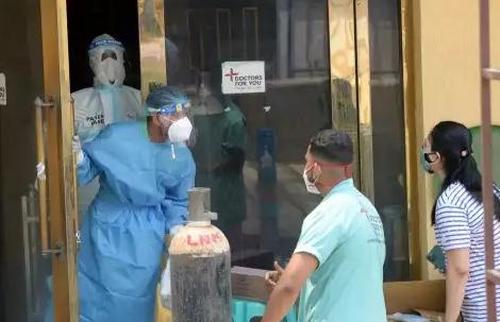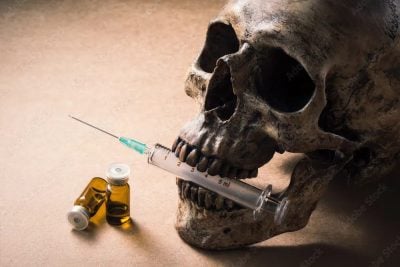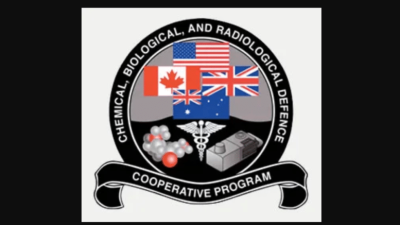Doctors Claim A Cocktail Of Cheap Drugs Could Help India Extinguish COVID Crisis
from ZeroHedge:

Last week, we reported that several increasingly desperate communities across India have been embracing a controversial (at least, in the US) strategy for trying to mitigate the fallout from the crisis. Communities have been doling out inexpensive anti-malaria drugs as a prophylactic against COVID-19, citing scant data showing it could help lower mortality and hospitalization rates – which is critical given India’s nationwide shortage of hospital beds and oxygen to sustain seriously ill patients.
TRUTH LIVES on at https://sgtreport.tv/
The drug in question, ivermectin, is in some ways similar to hydroxychloroquine, which also showed some evidence of being an effective prophylactic to protect the most vulnerable against COVID-19 (President Trump memorably informed the press that he was taking it daily at one point). But since India is mostly cut off from adequate supplies of vaccines and therapeutics like Gilead’s remdesivir (which studies have shown isn’t all that effective anyway), public health officials have been forced to improvise.

The Times of India published an editorial this week signed by Dr. Vikas Sukhatme and Vidula Sukhatme, two American academics and medical professionals, suggesting a handful of cheap, commonplace drugs that could be taken as prophylactics by the most vulnerable patients in India. The drugs aren’t approved to treat COVID, but nevertheless have shown “remarkable promise in preventing or treating the new coronavirus.” Deploying them would likely reduce mortality and hospitalizations. While some of the drugs are currently being tested in large-scale randomized trials, there’s no time to wait for the outcome.
Instead, Indian health authorities should issue guidelines recommending use of the most promising drugs for each stage of COVID-19. By so doing, physicians will be encouraged to prescribe them as interventions. The resulting data should of course be tracked for any insights it might show.
The two main drugs cited by the doctors, ivermectin and fluvoxamine, have proven effective, and anecdotal unpublished data from more than 400 acutely ill COVID-19 patients suggests that prescribing fluvoxamine and ivermectin together may be even more efficacious.
While daily case numbers have retreated from the peak in India, hospitalizations and mortality remain near all-time highs. Of course, as developing nations fight to waive IP protections for COVID vaccines, the notion that cheap existing drugs might be effective at combating COVID would represent yet another threat to Big Pharma’s bottom line.
Read the full editorial below:
The COVID-19 humanitarian calamity unfolding in India is on a scale not seen in this pandemic. This is an extraordinary situation – and it may benefit from an extraordinary response.
There exist affordable, readily available and minimally toxic drugs approved for non-COVID-19 use which show remarkable promise in preventing or treating the new coronavirus. Deploying these drugs in India is likely to rapidly reduce the number of COVID-19 patients, reduce the number requiring hospitalization, supplemental oxygen and intensive care and improve outcomes in hospitalized patients.
Some of these drugs are being tested in large-scale randomized clinical trials in the US and abroad but in most cases, definitive efficacy data is pending. With the current COVID-19 situation in India, we do not have time to wait for results of these studies. Importantly, currently available safety and outcomes data on these drugs is strong enough that it is time to incorporate them into national practice guidelines. Indian authorities should issue such guidelines on the most promising drugs for each stage of COVID-19. By so doing, physicians will be encouraged to use these interventions. The resulting real world data from a few healthcare settings in select cities should be tracked in real time and guidelines suitably revised. If such measures were adopted, we could see effects in 3-4 weeks. This strategy might be unusual but it is not unheard of: France has the Temporary Recommendation for Use, a “regulatory instrument which aims to allow, on a temporary basis, the use of a medicinal product to allow its effectiveness to be evaluated on the basis of its use.”



